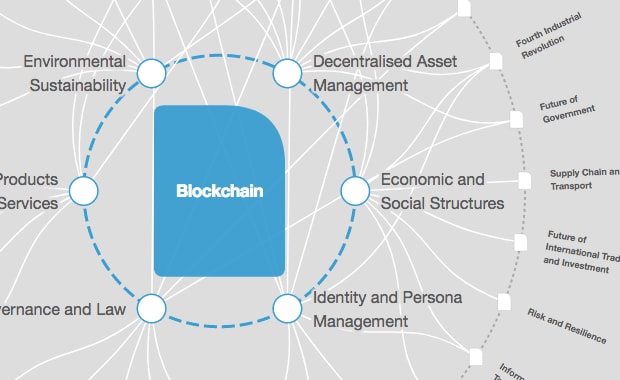Blockchain will make sure green pledges aren't just greenwash: a new initiative by young leaders at the World Economic Forum

Drones, satellites and IoT devices can check on deforestation, pollution and more Image: REUTERS/Nacho Doce
When a country or a company makes a promise to reduce carbon emissions, respect fishing quotas or cut toxic output, how can we be sure they'll keep their word?
The truth is, it's often extremely hard. But a new initiative - Global Ledger - led by a group of World Economic Forum Young Global Leaders (YGLs) aims to change that.
Using data from a nearly-infinite array of observation devices - drones, cameras, nano-satellites and soon-to-be-ubiquitous Internet of Things applications - reliable and unbiased information can be gathered and then stored using blockchain technology, which ensures data is verified and almost impossible to manipulate.
"There will be so much data they won't be able to game it," said Dorjee Sun, co-founder of blockchain startup Perlin and one of the YGLs behind the Global Ledger project. The initiative was launched Tuesday at the World Economic Forum's Annual Meeting of the New Champions in Dalian, China.
Most countries around the world have promised to limit their greenhouse gas emissions, but, as Sun said, "what’s quite surprising is today there isn’t really concrete, globally accepted, standardized scientific data that can show those commitments are met."
For example, the UK recently promised to reach net-zero emissions by 2050.
"This could actually be substantiated by Global Ledger because we would have the ability to aggregate data from public sources as well as corporates - what we call data philanthropy - and would be able to create meaningful results and monitoring and report cards."
Global Ledger's other leader is Helen Hai, a UN Goodwill Ambassador for industrialization in Africa who also heads the Blockchain Charity Foundation, which aims to use blockchain to achieve sustainable development.

Hai defines the Ledger as "a transparent platform providing trackable, non-changeable data."
The plan is to make the data available open to anyone - governments, NGOs, companies and the general public - so they can verify environmental commitments are being kept.
"Young people today want more than just activism, they want participation. So if they are able to participate by securing this distributed ledger, by running a node - a way of participating in the blockchain process - by also lobbying and pressuring for more data to be disclosed, I feel that it allows the young people to do more than just strike," Sun said.
Problems such as climate change, deforestation, over-fishing, pollution and garbage disposal will remain tough challenges, but the leaders behind Global Ledger believe those issues will at least be easier to monitor - something that should mean more environmental promises will be kept.
Don't miss any update on this topic
Create a free account and access your personalized content collection with our latest publications and analyses.
License and Republishing
World Economic Forum articles may be republished in accordance with the Creative Commons Attribution-NonCommercial-NoDerivatives 4.0 International Public License, and in accordance with our Terms of Use.
The views expressed in this article are those of the author alone and not the World Economic Forum.
Stay up to date:
Blockchain
Forum Stories newsletter
Bringing you weekly curated insights and analysis on the global issues that matter.
More on Emerging TechnologiesSee all
Dr Gideon Lapidoth and Madeleine North
November 17, 2025






